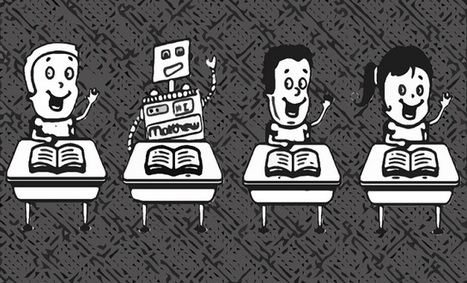Research and publish the best content.
Get Started for FREE
Sign up with Facebook Sign up with X
I don't have a Facebook or a X account
Already have an account: Login
Tech tools that assist all students to be independent learners & teachers to become better teachers
Curated by
Beth Dichter
 Your new post is loading... Your new post is loading...
 Your new post is loading... Your new post is loading...
|
|











We know the role of a tutor, but do we know the role of an intelligent tutoring system? Can it replace the role of a tutor, of an individual whom works with a students, asking questions, analyzing responses and quickly assessing to finetune instruction and feedback?
This post explores this issue, beginning with a history of intelligent machines (which date back to 1924) and moves on to how they work, providing a list of nine items that an "effective intelligent tutoring system" must have including:
1. Enable the student to work to the successful conclusion of problem solving.
2. Minimize working load.
After this discussion the post moves on and explores the benefits and criticisms of intelligent tutoring systesm.
The final section includes a list of fifteen influential programs in this area. Each program listed has a short description. The one program that is definitely free is ASSISTments (located at https://www.assistments.org/). This program was developed by Worcester Polytechnic Institute in collaboration with Carnegie Mellon and it is worth your time to check it ou. There are a number of videos that explain the program (as well as many tutorials if you choose to sign up).